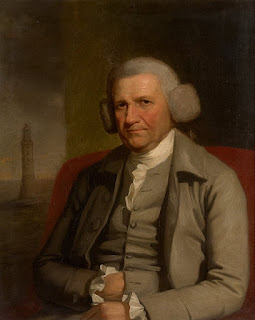John Smeaton: The Father of Civil Engineering
John Smeaton, born on June 8, 1724, was a pioneering civil engineer who is widely regarded as the "father of civil engineering." Smeaton's contributions to the field of engineering were numerous, and his work had a significant impact on the development of modern civil engineering.
Early Life and Education
John Smeaton was born in Leeds, England, and was the son of a lawyer. He attended Leeds Grammar School before going on to study at the University of Edinburgh. It was during his time at university that Smeaton developed an interest in mathematics and engineering.
Career
After completing his studies, Smeaton returned to Leeds and began working as a land surveyor. He quickly gained a reputation for his skill and expertise, and his services were in high demand. In 1753, Smeaton was commissioned to design a lighthouse for the Eddystone Rocks, a treacherous reef off the coast of Plymouth, England. This was a significant engineering challenge, as the lighthouse had to be strong enough to withstand the constant pounding of the waves and the force of the wind.
Smeaton approached the problem with a combination of careful planning and innovative engineering techniques. He designed a cylindrical tower with a solid base that was anchored to the rocks by dovetail joints, which allowed the structure to withstand the forces of the sea. The tower was also equipped with a number of innovative features, including a system of mirrors that reflected the light from a single candle to create a powerful beam that could be seen from miles away.
The Eddystone Lighthouse was completed in 1759 and was widely regarded as a triumph of engineering. Smeaton's innovative design set a new standard for lighthouse construction, and his techniques were later used in the construction of many other lighthouses around the world.
Smeaton went on to work on a wide variety of engineering projects throughout his career. He designed canals, bridges, and mills, and was also involved in the construction of the Forth and Clyde Canal, one of the most ambitious engineering projects of its time. Smeaton was a tireless advocate for the use of science and technology in engineering, and he believed that careful planning and rigorous testing were essential for the success of any engineering project.
Legacy
John Smeaton's contributions to the field of civil engineering were numerous and significant. He was one of the first engineers to use scientific principles to design and build structures, and his innovative techniques and designs set a new standard for engineering excellence. Smeaton's work had a profound impact on the development of modern civil engineering, and his legacy continues to be felt to this day.
In recognition of his contributions to the field, Smeaton was elected a Fellow of the Royal Society in 1753. He was also awarded the Copley Medal, the most prestigious scientific prize in England, in 1759. Today, Smeaton is remembered as one of the greatest engineers of his time, and his work continues to inspire and inform the field of civil engineering.



Comments
Post a Comment